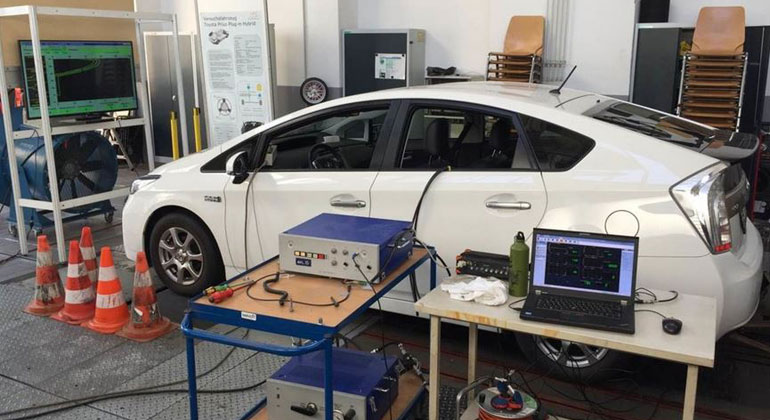Polluting plug-in hybrids are the car industry’s “wolf in sheep’s clothing”
As the government prepares to announce a possible earlier ban on petrol and diesel vehicles, campaigners warn ministers not to be “duped” by plug-in hybrid cars (PHEVs) and exempt them from an earlier phase out, as studies show that they’re two and a half times more polluting than official tests indicate.
he analysis of real world emissions data, from a range of studies across Europe by Transport & Environment, supported by Greenpeace UK, shows that on average PHEVs emit more than two and a half times more CO2 when driven by car owners compared to the results of laboratory tests [1].
The analysis found that because of design features requiring the engine to be on, limited electric range and because owners do not necessarily charge their plug-in hybrid cars as frequently as is possible, PHEVs actually emit 117g CO2/km on average, compared to the 44g CO2/km that official test results indicate. This makes them much closer in terms of carbon emissions to petrol and diesel cars, which emit 164-167g CO2/km respectively in real world conditions.
Despite Covid-19’s negative impact on car sales, more than three times as many PHEVs have been sold in the UK so far this year compared to all of 2019, showing their popularity is rapidly on the rise, in part owing to generous tax breaks. Although sold as “electric cars” the emissions are similar to those of a traditional hybrid car and far higher than a battery electric model.
Greenpeace UK’s head of politics, Rebecca Newsom, said: “Plug-in hybrids are the car industry’s wolf in sheep’s clothing. They may seem a much more environmentally friendly choice but false claims of lower emissions are a ploy by car manufacturers to go on producing SUVs and petrol and diesel engines.
“It’s great that the government is considering bringing the ban on new petrol and diesel vehicles forward to 2030, doing so is one of the most important things the government can do now to help tackle the climate emergency. But ministers mustn’t be duped by plug-in hybrids when making this critical decision – it’s imperative that they are included in the 2030 ban, and that support is provided to enable workers to transition to electric vehicle manufacturing.”
Greg Archer, UK director of Transport & Environment, said: “PHEVs are not electric cars and claims that in cities plug-in hybrids have zero emissions are just mischievous, misleading marketing. Unless the battery is frequently charged, these fake electric cars are actually worse for the climate than conventional cars.”
Most PHEVs driven in ‘zero emission mode’ or ‘eco mode’ – which is supposed to allow the car to be driven as fully electric over short journeys – actually continue to use their engine, emit CO2 and increase operating costs for the owner.
All of the UK’s ten top selling PHEVs switch from their zero emission function to using the car’s engine as soon as external temperatures are below 14°C, as the engine is required to provide heat for the passengers. The UK experiences average monthly temperatures below 14°C for at least half of the year [2].
- Transport & Environment and Greenpeace UK analysis: The Plug-in Hybrid con
- Monthly average daily temperatures in the United Kingdom (UK) from 2015 to 2020








